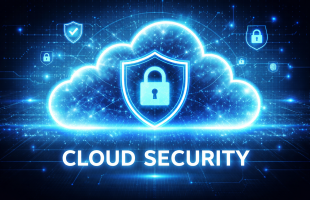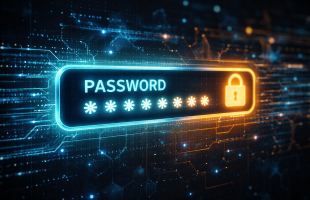In today’s workplace, Wi-Fi is more than just a convenience, it’s the backbone of how business gets done. From cloud-based applications and VOIP calls to file sharing and video conferencing, nearly every business function relies on a fast and reliable wireless connection.
But here’s the challenge: Wi-Fi networks are also one of the easiest ways for cybercriminals to infiltrate your systems. Hackers often look for unsecured or poorly managed networks, and once they’re in, they can access sensitive company data, client records, and even financial systems.
If you’re not actively managing Wi-Fi security, you may be putting your business at risk without realizing it. Below, we’ll break down the most common Wi-Fi risks offices face and show how managed IT services help protect your network and your reputation.
Common Wi-Fi Security Risks in Offices
1. Weak or Shared Passwords
It might sound simple, but one of the biggest risks is still poor password management. If your Wi-Fi password is short, predictable, or shared with every employee and guest, it only takes one compromised device to give hackers a direct line into your network.
Example: An employee logs onto office Wi-Fi using their personal phone that’s already infected with malware. If the network isn’t segmented or secured, that malware can spread quickly to company devices.
2. Outdated Routers and Access Points
Many businesses install Wi-Fi equipment and forget about it. The problem? Hardware and firmware updates are critical for closing security gaps. Old routers with outdated software are prime targets for cybercriminals, who can exploit known vulnerabilities to access your data.
A managed IT provider ensures your routers, firewalls, and access points are patched and updated regularly, reducing the risk of easy entry points.
3. Unsecured Guest Networks
It’s common to give visitors, contractors, or clients access to Wi-Fi during meetings. But connecting guests to the same network as your employees is dangerous. If a guest device carries hidden malware, it can spread into your main systems.
Best Practice: Set up a separate, isolated guest network. That way, guests can access the internet without touching your internal systems.
4. Rogue or Unauthorized Access Points
Sometimes employees or departments install their own Wi-Fi boosters or routers to “improve coverage.” While this may seem harmless, unauthorized devices often lack security settings and can open up your entire network to risk.
Managed IT teams detect and remove rogue devices, ensuring only authorized equipment is running.
5. Lack of Encryption
Wi-Fi traffic must be encrypted to prevent outsiders from intercepting communications. If your business is still using outdated security protocols like WEP or WPA, your data could be exposed. Modern standards like WPA3 are essential for keeping sensitive information safe.
How Managed IT Strengthens Wi-Fi Security
Partnering with a managed IT provider takes the burden of Wi-Fi security off your plate while ensuring your systems are properly defended. Here’s how:
Proactive Network Monitoring
Managed IT teams continuously monitor network activity, watching for unusual behavior like unauthorized logins or data spikes. Detecting threats early means preventing breaches before they escalate.
Regular Updates and Patch Management
Routers, firewalls, and access points are kept current with the latest firmware and security patches. This eliminates vulnerabilities hackers frequently exploit.
Network Segmentation
A key best practice is separating your networks, keeping employees, guests, and sensitive systems (like HR or finance) on different lanes. This reduces the risk of malware spreading across the entire office.
Strong Authentication and Encryption
Managed IT enforces secure access with tools like multi-factor authentication, WPA3 encryption, and unique logins for employees instead of a single shared password.
Employee Awareness Training
Human error is often the weakest link. Managed IT services often include training so employees know how to spot phishing attempts, avoid insecure connections, and practice good cyber hygiene.
Why Wi-Fi Security Matters More Than Ever
Unsecured Wi-Fi isn’t just a technical problem, it has real business consequences.
– Data Breaches: Exposed Wi-Fi networks can allow hackers to steal sensitive customer data, employee records, or trade secrets.
– Costly Downtime: Recovering from a breach or malware attack can bring business to a standstill, costing thousands per hour in lost productivity.
– Compliance Risks: Industries like healthcare, law, and education face strict data protection regulations (HIPAA, FERPA, etc.). Poor Wi-Fi security can lead to fines and legal exposure.
– Reputation Damage: Clients and partners trust you to safeguard their data. A single breach can permanently harm your brand.
According to IBM’s 2024 Cost of a Data Breach Report, the average breach now costs U.S. businesses $4.45 million, and Wi-Fi is often the weak link attackers exploit.
FAQs
Q: How often should business Wi-Fi hardware be replaced?
Most business-grade equipment should be replaced every 3–5 years to keep up with modern security standards.
Q: Can small businesses afford secure Wi-Fi?
Yes. Affordable managed IT packages include Wi-Fi monitoring, guest network setup, and encryption—without breaking the budget.
Q: What’s the #1 mistake offices make with Wi-Fi?
Sharing one simple password across the entire company, including guests, is the most common and dangerous practice. To learn more about IT mistakes, click here!
Q: How can I tell if my Wi-Fi has been compromised?
Unexplained slowdowns, strange devices connected to your network, or employees receiving phishing attempts can all be warning signs.
Final Thoughts
Your office Wi-Fi is the gateway to your business. If it’s not properly secured, everything behind it—emails, customer records, financials, and cloud applications—could be at risk.
The good news: securing your Wi-Fi doesn’t have to be complicated. With managed IT support, you get proactive monitoring, expert configuration, and peace of mind knowing your business is protected.
Don’t leave your Wi-Fi as an open door for cybercriminals. Let Document Solutions help you strengthen your network security and protect your data.
Contact us today to schedule a consultation and learn how managed IT services can keep your Wi-Fi secure and your business running without interruption.





